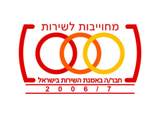Poll: Do you charge per word in the source or in the target document? Autor de la hebra: ProZ.com Staff
|
|---|
This forum topic is for the discussion of the poll question "Do you charge per word in the source or in the target document?".
This poll was originally submitted by José Salkeld
View the poll here
A forum topic will appear each time a new poll is run. F... See more This forum topic is for the discussion of the poll question "Do you charge per word in the source or in the target document?".
This poll was originally submitted by José Salkeld
View the poll here
A forum topic will appear each time a new poll is run. For more information, see: http://proz.com/topic/33629 ▲ Collapse
| | | | Jack Doughty 
Reino Unido
Local time: 08:02
ruso al inglés
+ ...
In Memoriam | Target preferred | Jul 23, 2007 |
I always base my invoice on a target word count if the customer will accept it. There is a considerable difference in word counts of the same piece in Russian and English, due to grammatical differences. I find that the Russian word count is only about 70% of the English. However, the character count is about the same. I take the Word 2000 count for my translation and say so in the invoice, so the client can check it if he wants. If a client insists on source count I charge a higher rate to... See more I always base my invoice on a target word count if the customer will accept it. There is a considerable difference in word counts of the same piece in Russian and English, due to grammatical differences. I find that the Russian word count is only about 70% of the English. However, the character count is about the same. I take the Word 2000 count for my translation and say so in the invoice, so the client can check it if he wants. If a client insists on source count I charge a higher rate to compensate for the difference. ▲ Collapse
| | | | | Maybe you could reword your poll | Jul 23, 2007 |
Hi,
In Italy we charge based on a standard page, i.e. 1500 keystrokes, spaces included (it can vary if it's a book, which can be 1800 or 2000 keystrokes, depending on the publisher).
As a result, I'd be forced to answer "I don't charge by the word". The fact is, however, that I DO charge based on source language.
You might find a better response to your poll if you just rephrase it as "do you charge based on source or target".
Catherine
| | | | | Line price, here in Germany | Jul 23, 2007 |
For German into English, a line price makes a good deal more sense, in view of the many composite words in German. It does not then matter whether source or target lines are counted, as there is not a lot of difference. Source lines is very slightly more profitable.
A line may be variously defined as 50, 52 or 55 characters. As a line of a particular number of characters is agreed, really we charge in the end by the character.
If I have to charge by words, I charge targ... See more For German into English, a line price makes a good deal more sense, in view of the many composite words in German. It does not then matter whether source or target lines are counted, as there is not a lot of difference. Source lines is very slightly more profitable.
A line may be variously defined as 50, 52 or 55 characters. As a line of a particular number of characters is agreed, really we charge in the end by the character.
If I have to charge by words, I charge target words. As there are 35% more target words than source words, if I am asked to quote by source word, or give a flat-rate quote, I simply add 35% to the number of source words and quote on that basis.
Astrid ▲ Collapse
| | |
|
|
|
| Question does not apply ..... | Jul 23, 2007 |
I only speak from my language combination. The question does not apply to mine, even from English to Japanese, I charge per source, then from Japanese to English, I charge per target.
Nonetheless, like Catherine I would suggest "Maybe you could reword your poll".
Reason as follows:
Unlike most of Indo-European language, in Japanese (and in Chinese as I know of), one character is the basis of word structure (unlike combination of alphabets in English or else). For... See more I only speak from my language combination. The question does not apply to mine, even from English to Japanese, I charge per source, then from Japanese to English, I charge per target.
Nonetheless, like Catherine I would suggest "Maybe you could reword your poll".
Reason as follows:
Unlike most of Indo-European language, in Japanese (and in Chinese as I know of), one character is the basis of word structure (unlike combination of alphabets in English or else). For instance, Japanese word for "school" has two characters, "computer" has 7 characters, etc.
If Jose, the poster, is aware of such characteristics of many Asian languages (Are Arabic or Hebrew same?) he well could have rephrased his question. ▲ Collapse
| | | | Yaotl Altan 
México
Local time: 02:02
Miembro 2006
inglés al español
+ ...
I always charge per source word. It's fair for both parties.
| | | | Steven Capsuto 
Estados Unidos
Local time: 03:02
español al inglés
+ ...
| Source word - it's a known quantity | Jul 24, 2007 |
Charging by target word seems like asking for trouble. I don't want the client wondering whether I used "line of credit" instead of "credit line" because it has more words or because it sounded better to me.
[Edited at 2007-07-24 02:02]
| | | | judithyf 
Local time: 10:02
hebreo al inglés
+ ...
| "Small" language to "big" language | Jul 24, 2007 |
Hebrew is a very concise language, whereas English is very diffuse. So H>E translators obviously charge per word of the target language. The word count can be up to 30% - 50% more!
| | |
|
|
|
| Depends on client | Jul 24, 2007 |
In fact most of the time, like Catherine, I charge by standard page, not word. However, as the real question is "source or target?", that's what I answered. Most of my Italian clients prefer a count based on the target, a few - and all my non-Italian clients - prefer a count based on source. I adjust my rate accordingly.
| | | | MikeTrans
Alemania
Local time: 09:02
italiano al alemán
+ ...
| Target word only in special situations | Jul 24, 2007 |
I agree with Yaotl: source word is always fair because both parties know about the price.
However there are special situations:
- How do you count words in PDFs ?
- How do you deal with uneditable text?
(I have done a poll on this one; hope it will be pubished).
Here it's better to charge with target words and adjust the prices accordingly, because in some language pairs the word difference is significant.
Mike
| | | | | The size of the job is the source text | Jul 24, 2007 |
To me, it seems only fair to charge for the source text, as this is the "size" of the job, regardless of how much longer/shorter the target text turns out to be. Obviously, the size of the job (along with difficulty level, topic, etc) is a key factor in estimating how long it will take me to do, so it's part of my basis for scheduling.
If I used the target text as a basis, the client would be agreeing to pay an unknown amount. Some (German) agencies seem surprisingly willing to do ... See more To me, it seems only fair to charge for the source text, as this is the "size" of the job, regardless of how much longer/shorter the target text turns out to be. Obviously, the size of the job (along with difficulty level, topic, etc) is a key factor in estimating how long it will take me to do, so it's part of my basis for scheduling.
If I used the target text as a basis, the client would be agreeing to pay an unknown amount. Some (German) agencies seem surprisingly willing to do this; I haven't yet come across a UK agency who will... ▲ Collapse
| | | | | Source if possible, target if not | Jul 24, 2007 |
ProZ.com Staff wrote:
This forum topic is for the discussion of the poll question "Do you charge per word in the source or in the target document?". This poll was originally submitted by José SalkeldView the poll hereA forum topic will appear each time a new poll is run. For more information, see: http://proz.com/topic/33629
Hullo,
As a rule I charge by source word if it is possible to count the words and by target word if not. Some source files, such as bundles of miscellaneous documents for case files that are not in electronic format, grubby faxed or photocopied documents from the 1970s, handwritten documents, etc. etc. cannot be counted electronically.
In the case of my language pairs, the English version usually turns out to be slightly shorter than the French or Spanish version anyway, so charging per target word is no disadvantage to the client.
I can't remember this ever being a source of controversy with any client of mine.
Kind regards,
Jenny.
| | | | To report site rules violations or get help, contact a site moderator: You can also contact site staff by submitting a support request » Poll: Do you charge per word in the source or in the target document? | CafeTran Espresso | You've never met a CAT tool this clever!
Translate faster & easier, using a sophisticated CAT tool built by a translator / developer.
Accept jobs from clients who use Trados, MemoQ, Wordfast & major CAT tools.
Download and start using CafeTran Espresso -- for free
Buy now! » |
| | Trados Studio 2022 Freelance | The leading translation software used by over 270,000 translators.
Designed with your feedback in mind, Trados Studio 2022 delivers an unrivalled, powerful desktop
and cloud solution, empowering you to work in the most efficient and cost-effective way.
More info » |
|
| | | | X Sign in to your ProZ.com account... | | | | | |















